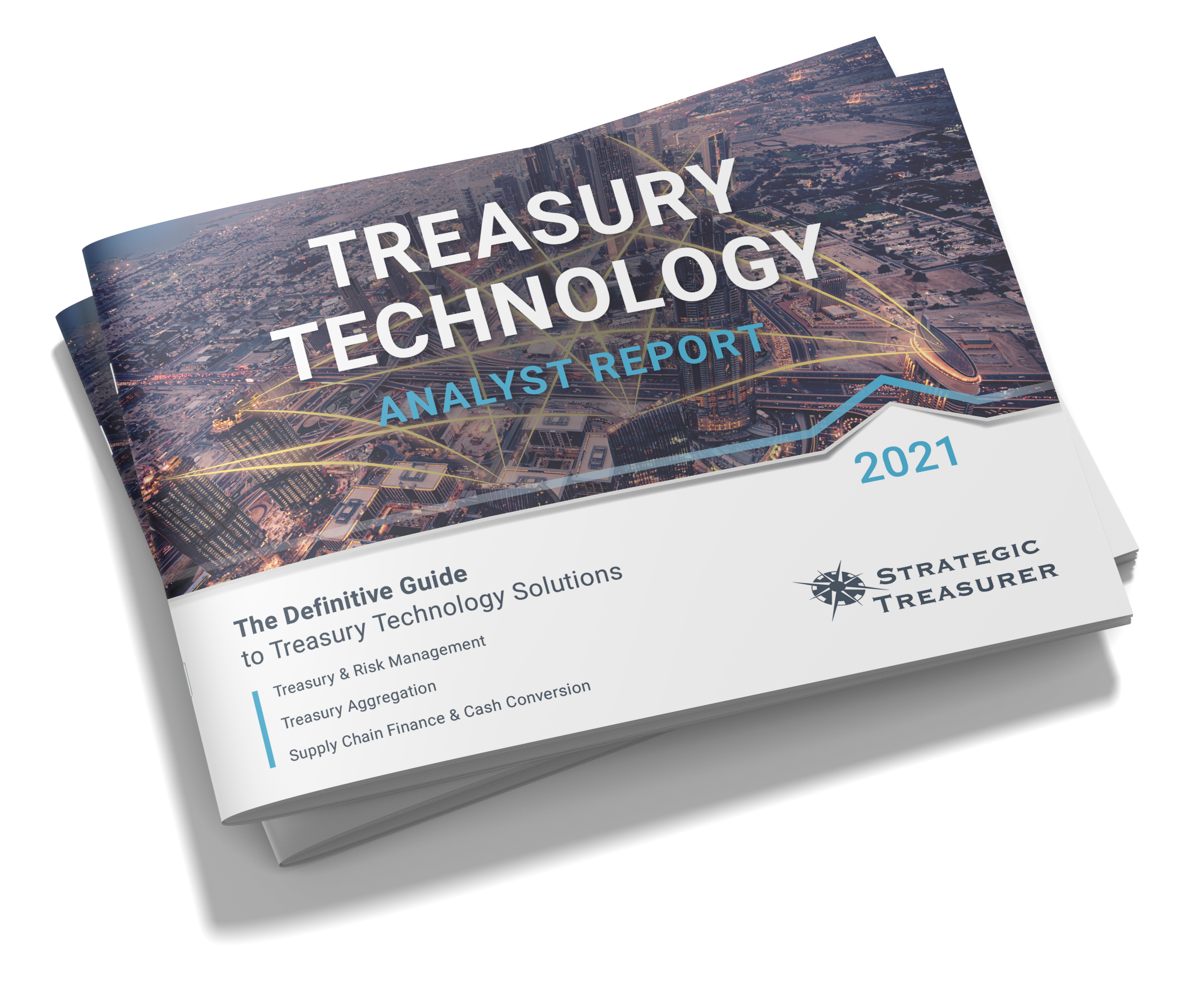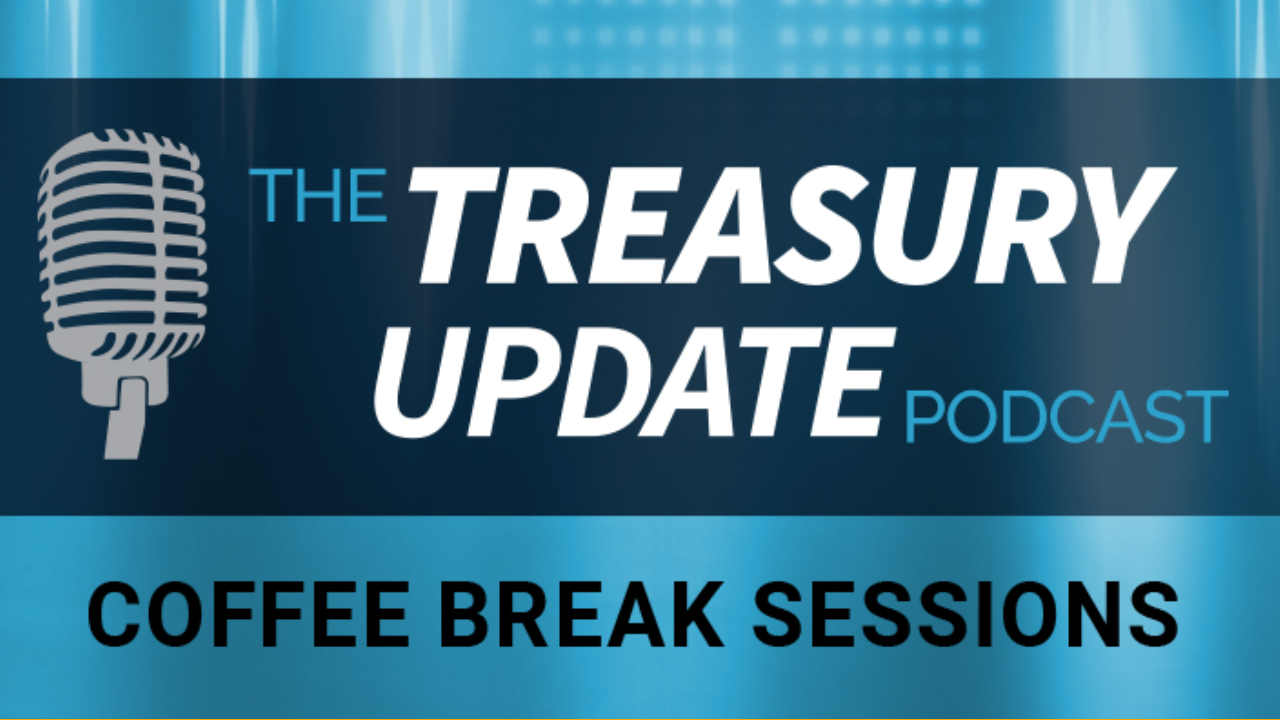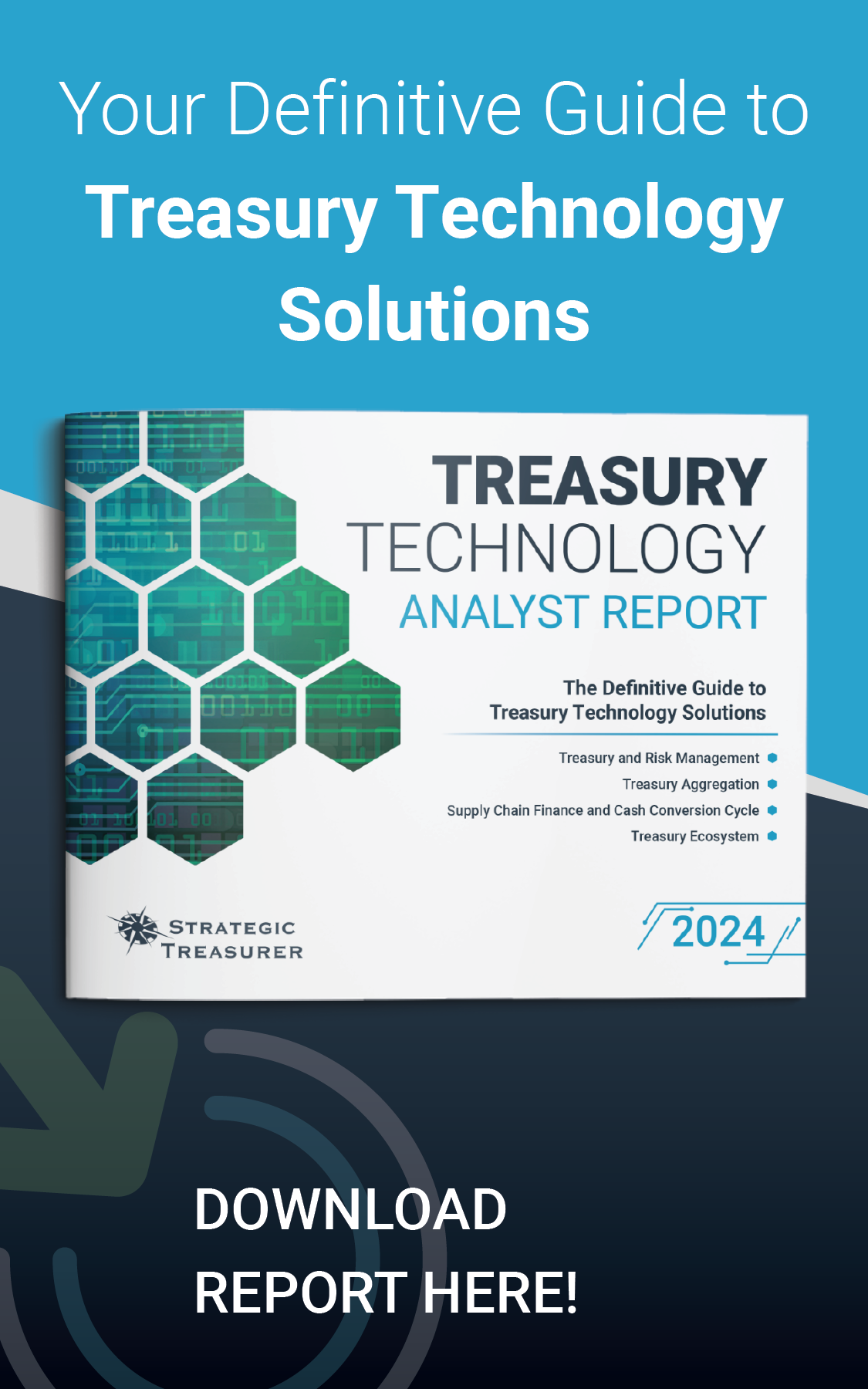
Session 72
Coffee Break Session:
What Is Commercial Paper (Capital)?
Host:
Jason Campbell, Strategic Treasurer


Speaker:
Paul Galloway, Strategic Treasurer


Episode Transcription - (Coffee Break Session Series) - Episode 72 - What Is Commercial Paper (Capital)?
Jason Campbell 00:03
Welcome to the Treasury Update Podcast, Coffee Break Sessions presented by Strategic Treasurer covering foundational topics and core treasury issues in about the same amount of time it takes you to drink your cup of coffee. I’ll be your host Jason Campbell, business development leader at Strategic Treasurer. Joining again, today with me is Paul Galloway, Senior Advisor at Strategic Treasurer, Paul, again, looking forward to another great conversation. And even though our past few episodes has been about investing, this one’s gonna take a little bit we’re gonna piggyback off of, of our previous episode around commercial paper on the investing side of it. But I’m also really excited to learn about the capital side of commercial paper. So Paul, how are you doing today?
Paul Galloway 00:44
Doing great, thanks for having me again.
Jason Campbell 00:47
Yeah, absolutely. You know, and again, each session I learned, hopefully every viewer of the podcast is, you know, get some key takeaways. I know, I continue to take some things away, add to my toolbox. I’m looking forward to the session. I know the last episode again, we talked about commercial paper as it relates to investing. And this side of it, we’re going to talk about how it relates to capital and raising capital. So who issues commercial paper?
Paul Galloway 01:08
Typically, the issuers of commercial paper or banks or non bank financials such as insurance companies and large corporations?
Jason Campbell 01:17
So had I actually kind of lead into to my next question, because I was just my thought when you just said that, but kind of dive into your perspective here, what it’s used for.
Paul Galloway 01:26
Typically, it’s used to fund company operations or to cover receivables. So it could be that, you know, they have payables that are cycling quicker than the receivables. And so they may need to raise some liquidity or some cash to cover the receivables until that cash comes in the door. In some instances, the issuer may have specific projects that they may need funding for commercial paper can be a way to fund these various projects that the company has going on.
Jason Campbell 02:00
When a company issues commercial paper to raise that capital. Is this mainly for, you know, is it for large organizations? Is it is it mid cap organizations, maybe particular, maybe small business, or hey, it could be anybody or a combination thereof.
Paul Galloway 02:16
It’s typically not just just anybody I talked about, you know, banks, non bank financials. And so banks, these are bank names that you would typically see out in the market, the paper market, sometimes you’ll get other vehicles that could be LPS or LCS, that issue paper that are typically fairly large in size that do that then there are some non bank financials like insurance companies, pretty common, wasn’t it with insurance companies. Back in the day, I also used to buy paper for Ford Motor, GM, GE, those are types of large corporations or non bank financials that were issued paper. So you don’t see small companies issuing commercial paper though have to go to other avenues to to raise liquidity or cash.
Jason Campbell 03:14
Are there limitations to issuing commercial paper?
Paul Galloway 03:18
Yes, there there are limitations. So typically, what happens is companies will work with commercial paper dealers, depending on what the program purpose is. And the sizing that you’re trying to do. You may work with several dealers, it could be, you know, less than a handful or up to more than that, depending on the size of the program and the dealers willingness to support the size of program, they will look at the fundamental financial strength of the company, their ratings, they’ll do analysis, they’ll go into the market and the look for kind of indications on what the willingness is of investors to buy the paper because you got to have a market for it. But these dealers go out and make a market for it. No, we’re only going to make a market for names that they believe in and are willing to support for the program.
Jason Campbell 04:16
How do you make an investment in commercial paper?
Paul Galloway 04:19
So issuers will work directly with dealers on sizing and duration based on their specific needs. investors such as institutional investors, mutual funds, pension plans, or insurance companies will work directly with the dealers to make a purchase or investment in the paper based on what their investment needs are. Sometimes this is directly negotiated with the dealer or the purchases made directly through a trading platform such as Bloomberg, based on what is made available in terms of yield, size, duration, and ratings, and issuer names. So are available out there.
Jason Campbell 05:01
I got one more question. I want to ask you on this on this particular subject here, if you don’t mind, I just want to know your perspective for an organization to look at, you know, raising capital through issuing commercial paper. Do you like it? Do you not like it? Do you like, Hey, I’m kind of in between? I’m lukewarm with it. I’m just kind of getting a pulse check on what your thoughts are about it.
Paul Galloway 05:19
So there’s a couple of different ways you can go about that treasurer’s may have people on the team or the treasurer itself, is doing the analysis work that’s needed to determine, you know, are they go with the name or not? Right? That’s one approach that can be taken. The other is, is that it could be the treasurer is working with folks on their internal investment team. Maybe they have a credit team that they’re working with. And so they’re looking at the overall investment in bonds and short duration instruments the Treasury team might make, they might work together to say, Okay, what do you think about these names? You know, are you good on these names? Are these names we should stay away from? What names do you think we should look at from an investment perspective?
Jason Campbell 06:12
Well, thank you for walking us through a little bit more into commercial paper as it relates to capital itself. You know, what it’s used for some limitations and just kind of give us your perspective on it. So Paul, I really do appreciate your insights. For our listeners. Please ensure to tune in every first and third Thursday of the month for a new episode of the Coffee Break Sessions. As usual. If you have any questions, comments or feedback, please send us a note at podcast@strategictreasurer.com. Until next time, take care.
Announcer 06:42
This podcast is provided for informational purposes only, and statements made by Strategic Treasurer LLC on this podcast are not intended as legal, business, consulting, or tax advice. For more information, visit and bookmark StrategicTreasurer.com.
Researching new treasury and finance technology can be overwhelming. Strategic Treasurer has stepped in to help. Explore our definitive guide to the treasury technology landscape and discover detailed, data-based coverage of:
- Treasury & Risk Management Systems
- Treasury Aggregators
- Supply Chain Finance & Cash Conversion Cycle
A part of the Treasury Update Podcast, Coffee Break Sessions are 6-12 minute bite-size episodes covering foundational topics and core treasury issues in about the same amount of time it takes you to drink your coffee. The show episodes are released every first and third Thursday of the month with Host Jason Campbell of Strategic Treasurer.




